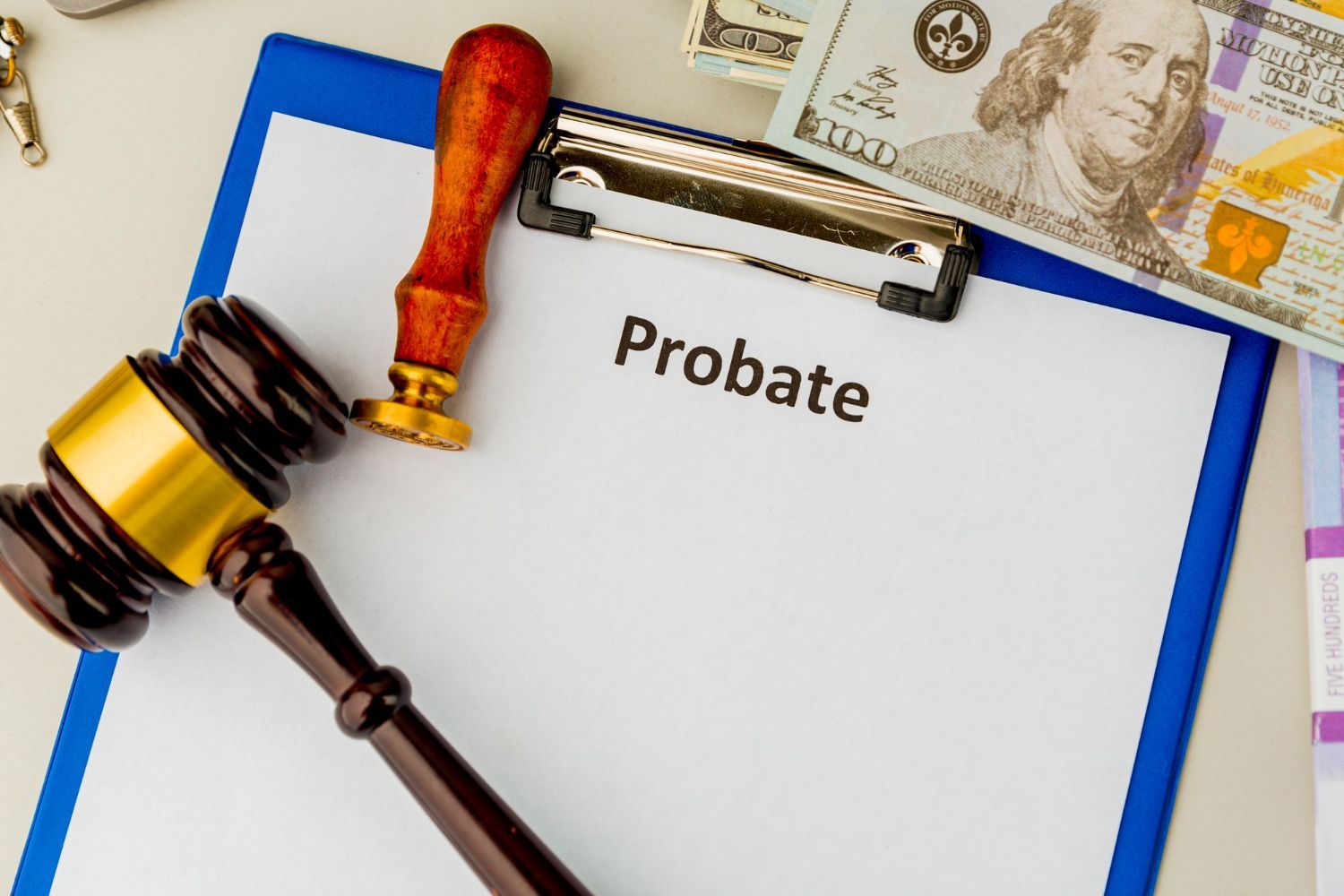Protecting Your Inheritance Through Proper Estate Planning
You work hard to build what you have. Whether it's a family home, a savings account, or a growing business, those assets represent years of sacrifice and effort. But what happens to all of that when you're gone? Estate planning is one way to make sure the legacy you leave behind ends up in the right hands. Without it, there's a lot of guesswork involved and that can often lead to conflict or mismanagement.
A well-thought-out plan gives you control over what happens to your inheritance, protects against potential disputes, and eases the burden for your family down the road. People often want to avoid probate, lower possible estate taxes, or protect a child who may need special assistance. No two families are the same, so a one-size-fits-all plan just won’t work. The good news is, there are practical tools that can help protect what matters most.
Wills And Trusts: The Foundation Of Estate Planning
When most people think of estate planning, they immediately associate it with a will. While a will is a common piece of the puzzle, a trust might offer advantages that a basic will doesn't. Both can serve the same goal of passing along property, but they operate differently, especially when you factor in timing and court involvement.
A will outlines how you want your property distributed and who should handle your estate. It takes effect after your death and is carried out through the probate process. Probate is a public, court-supervised process and can sometimes be slow or complicated. A will, by itself, doesn't avoid probate.
On the other hand, a trust goes into effect as soon as it's created and funded. It allows you to transfer assets during your life or after your death while avoiding probate. This is one reason trusts are often used when people want to keep things private and reduce hassle. Trusts also give you more control, especially when dealing with complex situations like blended families, younger beneficiaries, or special needs planning.
Here is a quick breakdown of the key differences:
- A will becomes active only after your death. A trust is active once it’s created.
- Wills go through probate. Trusts typically bypass it.
- Trusts allow for better planning for minor or dependent family members.
- Wills can name guardians for minor children. Trusts cannot.
Using both a will and a trust together may offer the best of both worlds. While a trust handles most assets discreetly, a will can cover anything not placed into the trust and name guardians if you have children under 18. It’s a flexible approach that gives you security while covering all bases.
Asset Protection Strategies
Many people assume estate planning is only about who gets what, but protecting those assets from potential threats matters just as much. Lawsuits, creditors, divorces, or even financial mistakes by your beneficiaries can jeopardize what you’ve worked to build. This is where asset protection plays a role, especially for those with significant property, business interests, or financial accounts.
Not all strategies are one-size-fits-all, but trusts again prove useful here. For instance, an irrevocable trust can remove assets from your taxable estate and help shield them from creditors. Once you transfer assets into an irrevocable trust, you release control over them, but you also remove liability. This is helpful if you're trying to keep assets safe from nursing home costs or future lawsuits.
Other asset protection methods include:
- Titling property in ways that reduce risk, such as tenants by the entirety for spouses
- Creating a family limited partnership (FLP) to hold and protect business interests
- Structuring accounts or transferring ownership to protect individual assets
Georgia laws will affect how these strategies are applied. Some protections are available automatically, while others need planning well in advance. Timing plays a role. For example, last-minute transfers to avoid an expected debt may not hold up in court. That’s why proactive planning is better than scrambling later.
Even if your estate isn’t large, shielding what you have from unnecessary loss helps preserve options for your loved ones. Looking at risks now helps avoid reacting in a time of crisis.
Incapacity Planning
Life can change in an instant. A stroke, accident, or progressive illness can leave someone unable to make their own decisions. This is where incapacity planning becomes important. It makes sure that your medical care and finances are handled the way you want, even if you can't speak for yourself later on.
A durable power of attorney is often the first tool people use. It lets someone you trust manage your finances if you're unable to do so. This includes paying bills, handling investments, and dealing with banks. Without this, your loved ones might need to go through a court process to take care of these tasks, which costs time and money.
A healthcare directive goes along with that. It explains your wishes for medical treatment and names someone to speak with doctors on your behalf. Without one, decision-making could fall to someone you wouldn’t have chosen.
It’s easy to assume you’ll get to it later, but these documents only work if they’re signed before anything happens. They also need to be updated regularly. Marriage, divorce, childbirth, or a move to another state can all affect what’s appropriate.
Think of one case where this planning helped. A business owner in Georgia suffered a brain injury in a car wreck. Because she had her documents in place, her sister lawfully stepped in to manage payroll and keep operations going. That step kept the business from shutting down and helped her recover without added stress.
Estate Tax Planning Tips
Estate taxes won’t affect everyone, but if you're passing on a large estate or certain business interests, tax planning could help reduce what's lost to the government. Even modest estates can be impacted, especially if laws change or if decisions aren’t made in time.
Good tax planning looks at what your estate might be worth when you pass away, what the laws say at that time, and who you leave things to. Couples in Georgia often benefit from using both spouses' tax exemptions, which can double protection when set up correctly.
Some ways to reduce or manage estate taxes include:
- Gifting parts of your estate over time using annual gift exclusions
- Setting up family trusts that include tax-saving provisions
- Donating to charities through planned giving programs
- Including life insurance inside certain types of trusts
Working with someone who understands Georgia’s estate laws is important. You’ll want to avoid common mistakes like skipping paperwork or ignoring tax exposure for out-of-state property. These kinds of steps go a long way toward keeping more for your loved ones to benefit from.
Georgia-Specific Estate Planning Concerns
Georgia has some key differences when it comes to estate planning. While Georgia doesn’t have its own inheritance or estate tax, your estate could still be affected by federal taxes or taxes in other states if you own property beyond Georgia lines.
It’s also helpful to be aware of how Georgia probate courts operate. For example, Georgia allows for a simplified probate process if the estate is small or uncontested. Still, that doesn't apply in every case. Naming a clear executor in your will helps reduce delays, especially if the will hasn’t been reviewed or updated in years.
Recent legal updates also shape how planning should be done. Changes to power of attorney rules, spousal property rights, or guidelines for managing digital assets can all affect older plans. If your plan is more than five years old, there's a good chance it’s missing key updates.
Here are a few Georgia-specific tips that help:
- Make sure your will meets Georgia’s signature and witness rules
- If your executor lives out of state, consider naming someone local to make probate easier
- Use clear titles for property ownership. Vague or inconsistent records can cause delays.
- Make a plan for managing digital assets like banking apps, websites, and email accounts
The law at McGinn Law is shaped by Georgia’s rules, so your plan will reflect what works now—not what used to work years ago. Getting an updated plan means your documents will hold up when it matters most.
Make Sure What You Build Stays Protected
Estate planning is about more than passing things down. It’s about taking care of the people you love and protecting the work you’ve put into your life. Whether you're looking out for a child with special needs, a small business, or just hoping to spare your family some difficult decisions, a thoughtful plan gives you more control.
Start by thinking through what you own, who you want to protect, and how you’d want things to go if something unexpected happened. The best plan fits your life, not just a checklist from a template. Every piece matters, and even a few steps now can make a big difference when the time comes.
Securing what you've worked for requires thoughtful preparation. McGinn Law can assist in crafting a personalized plan that takes care of your
estate planning needs. Learn how we can help ensure your wishes are honored, providing peace of mind for you and your loved ones.





